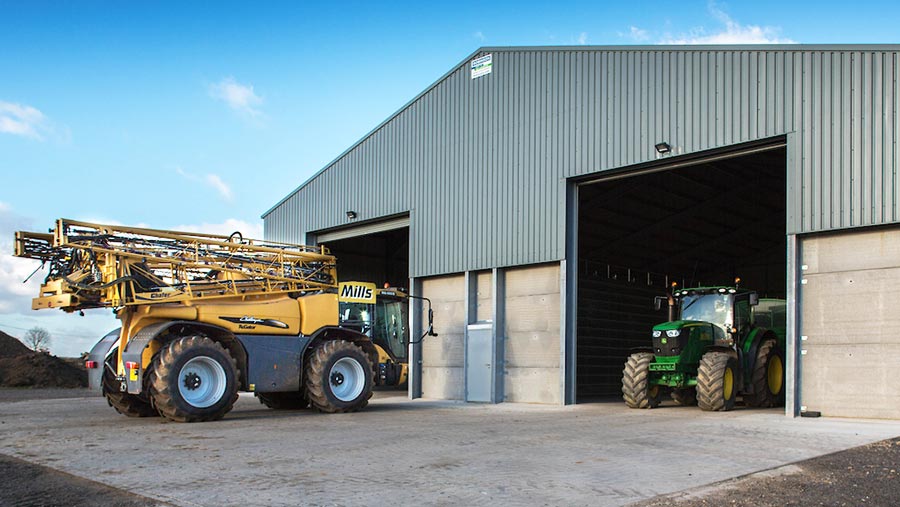How to avoid costly pitfalls during farm business expansion
 © Tim Scrivener
© Tim Scrivener Expansion can have knock on effects that may not be anticipated. Plan, plan and plan again is the message from advisors.
The biggest cost to expansion can often be the opportunity cost of neglecting the current land base, warns David Watson, a partner at Bidwells Agribusiness.
“With timeliness for example of sprays often the key driver to efficacy, a few days late on say septoria applications can be the difference between them working or not.”
The budget must include sensitivity analysis on price changes and yield, he says. “Once you have done that, try and fix some of the variable costs, with early orders of inputs, and fix some grain sales.
“Take advantage of short-term kit hire to limit production costs, for example grain trailers, which are often only needed for two weeks a year when cutting wheat – not all kit must be owned.”
It’s also important to understand where the “lumps” are in expansion costs.
“You may be able to add 10% to your area and this will cost you only marginal costs – fuel, repairs, labour –but when you add another 10% or then another, eventually you are in a whole new environment for kit size, so know when to say no, and even when to give up land.”
See also: Find more online advice in our business section online
Most farms have enough resource to take on 20% extra work if the season is kind, but there needs to be a plan for the poor year, and there are options such as contractors or changing the cropping mix, says Mr Watson.
“But don’t base expansion plans on the one year in six that work is compromised – you need to plan, plan and plan.”
Staff are also critical to success in an expanding business.
“Train and reward teams appropriately. I prefer salaried staff rather than wage plus overtime, but perhaps build in performance bonus. Give staff clear objectives and provide communication.”
Overcoming hurdles
There is often good impetus at the start of a project when an idea is new and fresh but when it comes to putting it into action, unexpected hurdles can cause delays, says Polly Sewell of land agent and farm business adviser Robinson & Hall.
A reliance on paperwork, services or permissions from outside sources can hold up progress, so setting realistic timescales at the beginning of a project, identifying outside suppliers and having clear stages for completion can help keep things on track.
Funding
It’s not only banks which need a long lead time and good budgeting for arranging funding – grants often take a long time to secure too, so factor this in to the plan. Furthermore, many banks will only release funding in tranches as a build develops, so consideration needs to be given to the upfront costs.
Planning consent
If new buildings or conversion of existing buildings is involved, does this require planning consent? The timescales and costs of this need to be considered.
Permits, licences qualifications
Do you require a permit or licence for the new enterprise? If so make sure this can be gained prior to commencing the project.
Advice
Take professional advice – there will be a cost but good professional advice at the outset should save you money in the long term.
Financial planning
A lender will stress test the business to check it can afford the repayments – if you have already done these calculations you will have the figures at your fingertips, which gives the bank confidence in your ability to manage your finances and gives a good first impression.
Shop around for the best deal if you are borrowing money – rates are generally low at the moment but some banks are more flexible towards new projects than others so it is worth going to a few, and perhaps lesser known names, for unusual projects.
Longer terms loans, say 25 years, are good value at present but some have a five or 10-year review by the bank – check the paperwork carefully for these.
While long-term fixed rates are at historical lows, be careful of the level of early repayment charges if there is a chance the loan could be repaid early.
Expectations
Do not overcommit. Nothing does a business more harm than letting a customer down. One bad piece of feedback can taint a business for a long time.
Market research
A great idea can take its originator down the wrong track, costing precious time and money. If the business is a new enterprise, market research is important – are other people doing what is planned? Take a realistic look at whether there is demand in the area or is the market saturated? Who will be the end users and is the business well located to reach those people?
